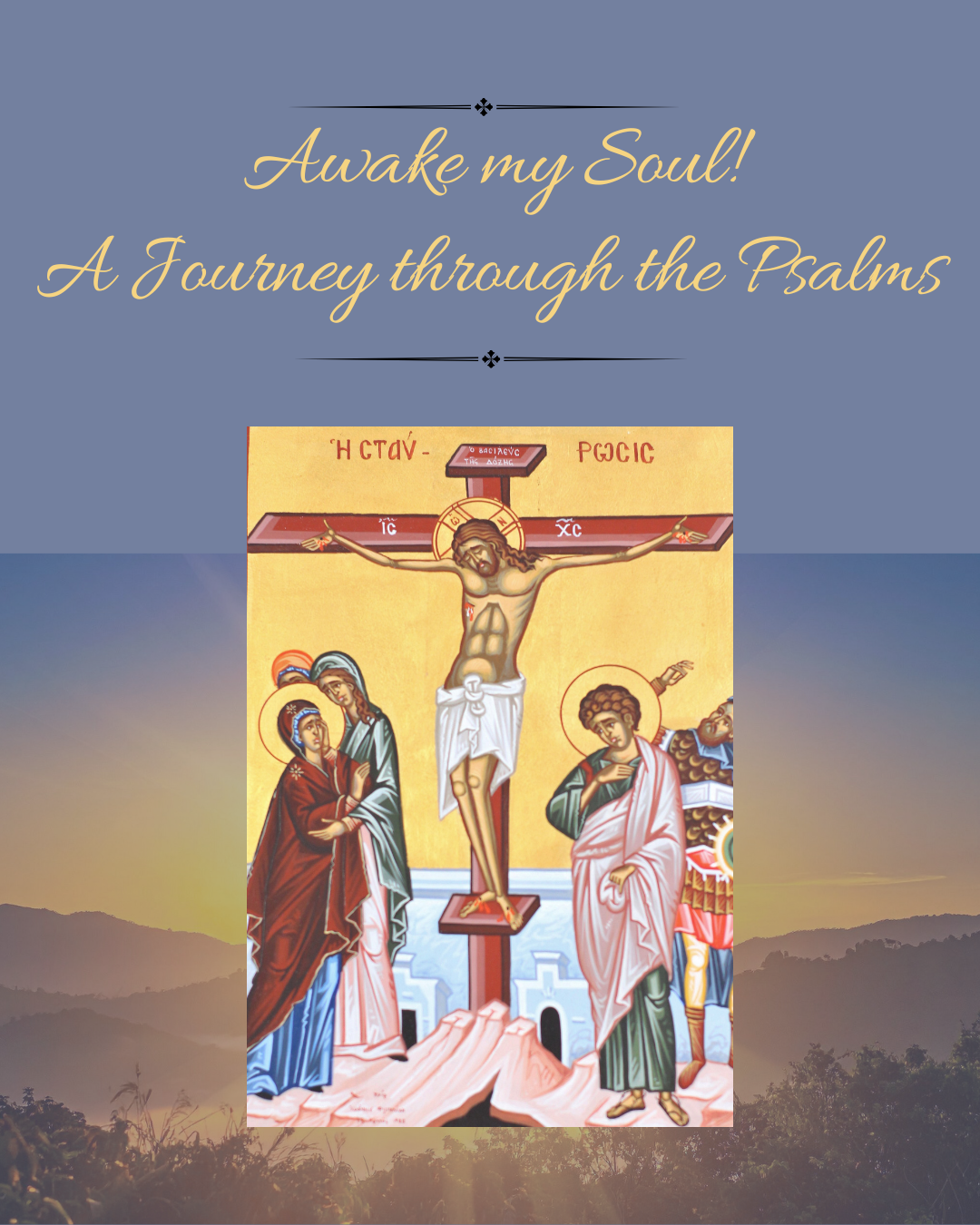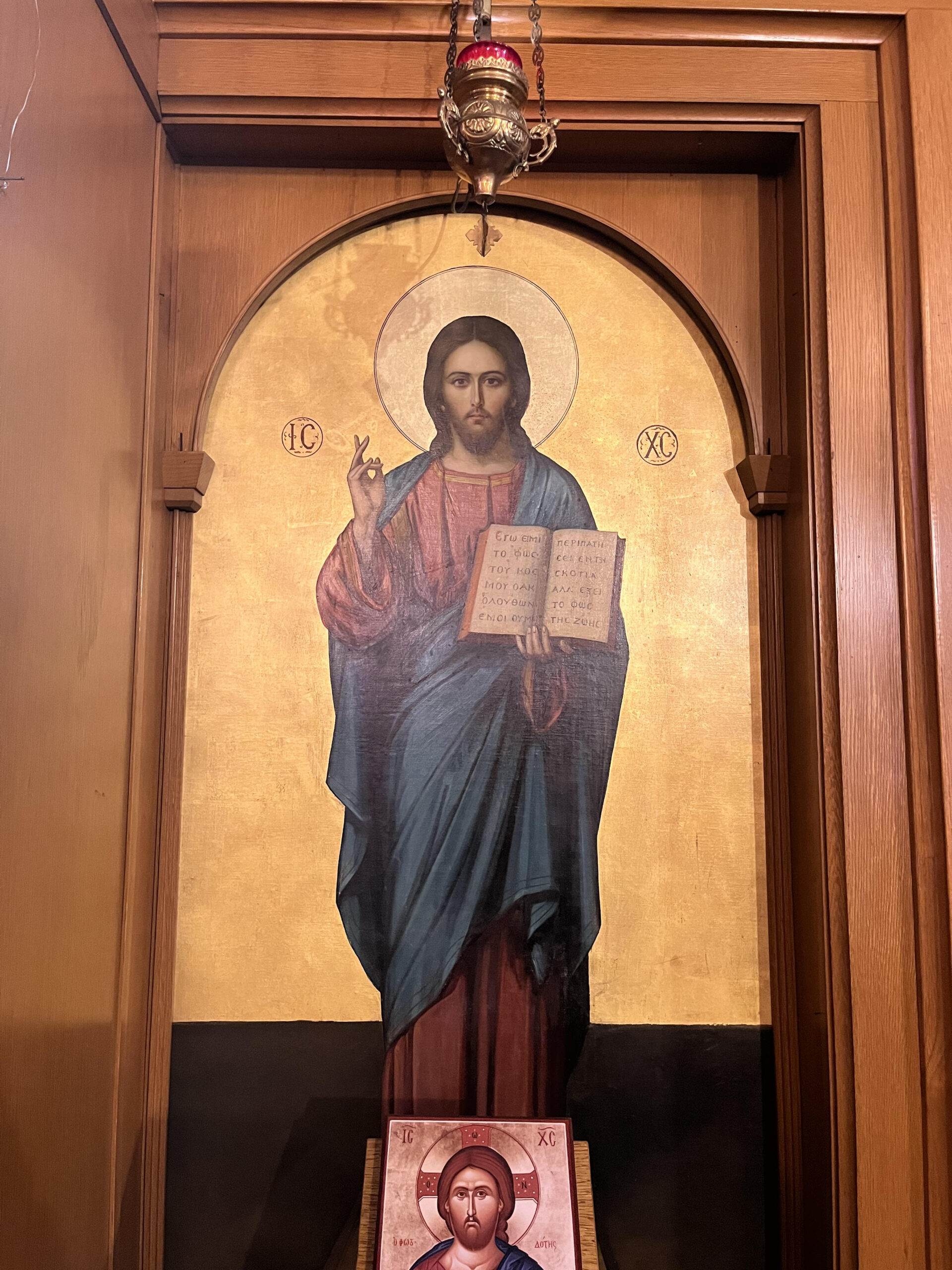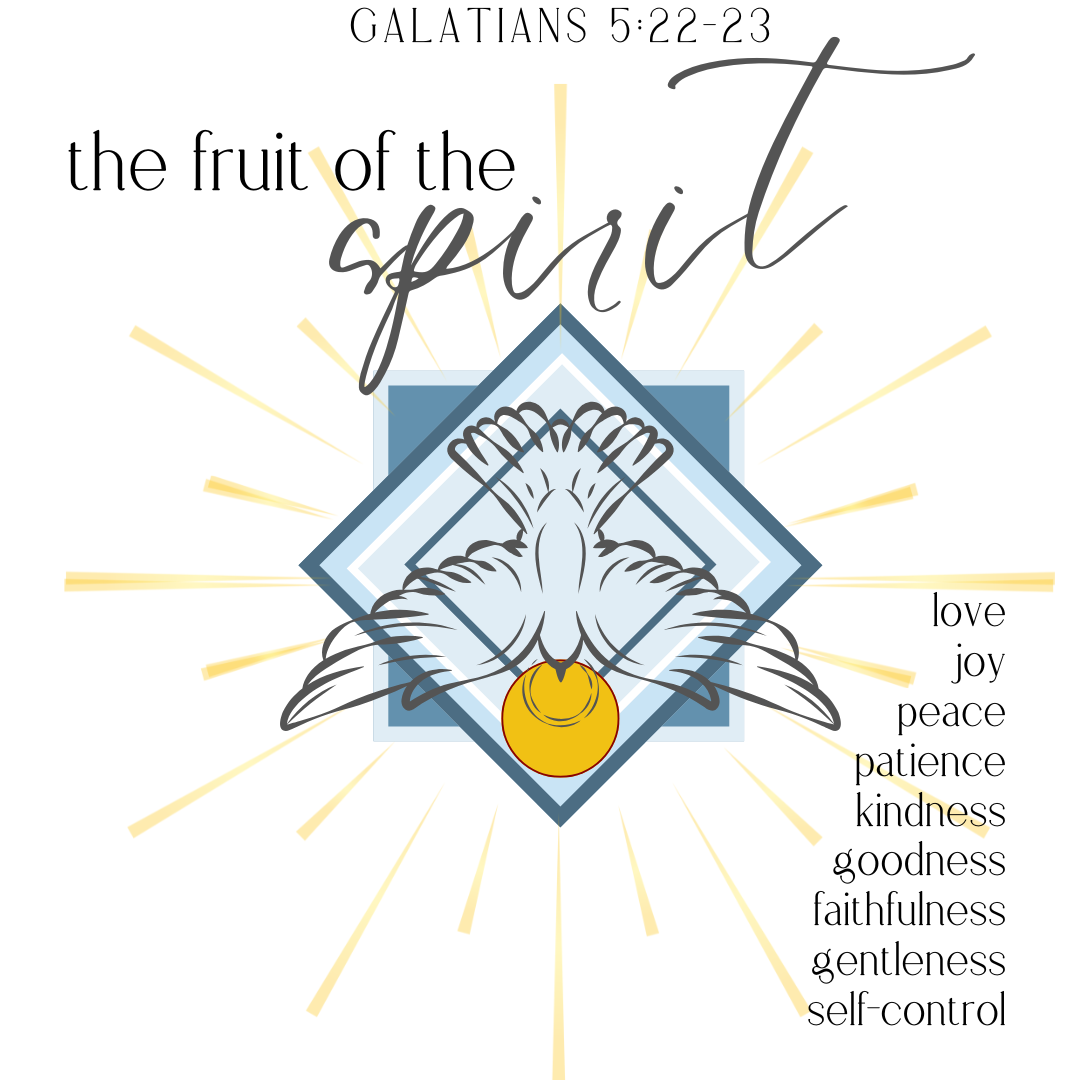And He took a cup, and when He had given thanks, He gave it to them, saying, “Drink of it, all of you; for this is My blood of the New Covenant, which is poured out for many for the forgiveness of sins.”
Matthew 26:27-28
And He took a cup, and when He had given thanks He gave it to them, and they all drank of it. And he said to them, “This is My Blood of the new covenant, which is poured out for many.”
Mark 14:23-24
And He took bread, and when He had given thanks He broke it and gave it to them, saying “This is My Body which is given for you. Do this in remembrance of me.”
Luke 22:19
Fun fact: Did you know that the word “Eucharist” is not even used in the Bible, at least not as it relates to Holy Communion? The word “thanksgiving” appears many times in the Bible and it is the Greek word “Efharistia.” “Efharistia” means “thanksgiving.” It would take a few centuries for the Eucharist to come to be synonymous with Holy Communion. And literally, the word “Eucharist” or more specifically “Holy Eucharist,” comes from “Thea Efharistia” which means “the divine/Holy Thanksgiving.”
In today’s reflection, there are verses from the three Synoptic Gospels—Matthew, Mark, and Luke—that all relate to the institution of Eucharist/Holy Communion/New Covenant by Jesus at the last supper. It is interesting that Jesus does not refer to the giving of bread and wine as either Eucharist or Communion, the names by which they are known now. He calls what He is doing “The New Covenant.” The Old Covenant was made with Abraham and involved circumcision. The Law was given to Moses in order to build on the Old Covenant. Part of the Law given to Moses was that a tabernacle had to be built which contained the Ten Commandments and the rest of the Law.
In establishing the New Covenant, Jesus was replacing circumcision, a sacrifice involving the shedding of blood, with His sacrifice involving His shedding of blood for all people. Henceforth, the “sacrifice” that is the New Covenant does not involve the shedding of blood, but rather the offering of gifts of bread and wine and their consecration by the Holy Spirit to become the Body and Blood of Christ. In receiving Communion, we affirm the New Covenant.
The term “Holy Communion” also does not appear in the Bible. Was does appear is the word “kinonia,” which means “community” or “fellowship.” Holy Communion, or “Thea Kinonia” means the Divine Fellowship or Divine Community. When we think of fellowship or community, we think of our friend groups, or our families, the people we have fellowship with, the close community which we trust. In receiving Holy Communion, we establish a communion, and a community with the Lord, and with the saints. Thus, in addition to affirming the new covenant, we are also establishing a bond, a union, with the Divine Nature, as we touch God, and a divine association with all those who are like us, whether they are the saints that adorn the walls of our churches, or those on the way to being saints who sit in the pews next to us.
I’ve written many times that the first sin committed by human beings was not the disobedience of eating of a forbidden tree. Rather it was a thought of ingratitude that led mankind to not feel thankful for all it had been given, but instead to feel greedy and angry for what it could not have. The first sin was caused by the failure to be thankful. Our redemption is made possible through the saving work of Jesus Christ, including His leaving of the New Covenant which today is personified in the Eucharist. Thus, in receiving Holy Communion, we communicate our thanksgiving to God. We reverse the fall of Adam, so to speak, as we go back in time, and instead of proclaiming sorrow over what we don’t have, we express joy in the receiving of the Eucharist. In a sense, each time we receive Holy Communion, in addition to asking Christ to come into us, to strengthen us, and to heal our brokenness, it is as if we are also saying the “Thank You God” that somehow Adam could not say. Thanksgiving can only be offered when one is in a state of contentment. Thus, partaking of the Eucharist tells God we are content and grateful with where we are. We are not always wanting more and more.
The Eucharist affirms the New Covenant as well as our faith in Jesus Christ. It brings us to Communion/Divine Fellowship with Christ and with all those who believe in Christ and who partake together. And it expresses thanksgiving to God for all of His blessings. As we celebrate Thanksgiving this week, let us remember to be thankful for Christ’s gift of salvation, and one tool that He has given us to strengthen us in that journey—the New Covenant, the Eucharist. As we gather around our tables with our communities of families and friends, let us also remember the importance of gathering with our church community and parish family, to partake of the Holy Community that is established each time we partake with others of the Divine Nature of Christ. And let us remember as we wish others “Happy Thanksgiving,” let us remember to be thankful to God and to express our thanksgiving by partaking of the Holy Thanksgiving, the Eucharist.
May Your Holy Body, O Lord Jesus Christ, our God, be to me for life eternal, and Your precious Blood for remission of sins. And may this Eucharist be to me for joy, health and gladness. And at Your Awesome Second Coming, deem me, the sinner, worthy to stand at the right hand of Your glory, through the Intercessions of Your all-pure Mother and all Your saints. Amen. (From the Post-Commuion Prayers of the Divine Liturgy, official text of the Divine Liturgy, translated by the Greek Orthodox Archdiocese of America)
Receive the Eucharist often—it’s the way we thank God, affirm the New Covenant, and partake of Divine Nature in this life.


